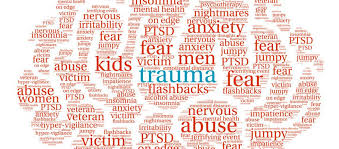Almost any situation that causes feelings of horror, fear and helplessness can be considered traumatising. It could be a one-off disaster like a terrorist attack or a hurricane or other natural disaster or the sudden death of a loved one, for example. Long-term trauma can be experienced as well, such as the ongoing effects of living in a violent neighbourhood, persistent childhood abuse or a terminal illness. Trauma affects people in different ways and manifests differently depending on the individual.
Common reactions to trauma include anger, fear, and sadness. Other reactions cause the development of physical reactions like muscle tension, headaches and nausea, trembling, heart palpitations and chest pain, dizziness, chills, and numbness. For other people, a common sign of trauma is emotional numbing, which can appear as indifference to others. For information on Trauma informed practice training, go to Tidal Training.
A wide range of treatments learned during Trauma informed practice training can address the impact of trauma, as well as any mental health conditions that develop as a result such as anxiety or depression. Psychotherapy, such as dialectical behaviour therapy and eye movement desensitisation and reprocessing, can help people learn to recognise their negative thinking patterns and replace them with healthier ones.
Techniques like exposure therapy can decrease the power that traumatic memories have to trigger painful physical and emotional symptoms. In addition, self-care strategies and support from friends, family, and community groups can provide relief.




